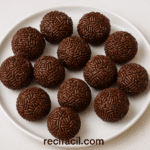Proper food storage is essential not only for maintaining the freshness of your food but also for preventing foodborne illnesses. By following simple steps, you can ensure your food stays fresh, nutritious, and safe for consumption for a longer period. Here are some essential tips for proper food storage:

1. Keep Perishable Foods in the Refrigerator
- Fruits and vegetables: Store most fresh produce in the fridge, but be sure to keep ethylene-producing fruits (like apples, bananas, and tomatoes) away from other fruits and vegetables, as they can cause them to ripen faster.
- Dairy and meats: Always store dairy products like milk, cheese, and yogurt in the coldest section of the fridge, and keep meats in airtight containers to avoid contamination and preserve their freshness.
2. Use Airtight Containers for Dry Foods
- Grains, cereals, and pasta: Store these foods in airtight containers or resealable bags to protect them from air, moisture, and pests. Ensure the containers are sealed tightly to maintain freshness.
- Nuts and snacks: These should also be kept in airtight containers to prevent them from becoming stale or absorbing odors from other foods.
3. Freeze for Long-Term Storage
- Freezing fruits and vegetables: Freezing is one of the best ways to preserve the nutritional value of foods. For most fruits and vegetables, wash and chop them before freezing, and store them in freezer-safe bags or containers.
- Cooked meals: If you have leftover meals, freeze them in small portions to avoid wastage and make future meals easy to prepare. Make sure to label them with the date to track freshness.
4. Label and Date Your Food
- Expiration dates: Always check expiration dates on products and make sure they are properly stored by these dates. For homemade items, label them with the date they were made and freeze them if needed to ensure they last longer.
- Rotation method: Apply the “first in, first out” (FIFO) method, ensuring that older products are used before newer ones.
5. Store Grains and Flours in Cool, Dry Places
- Flour, rice, and beans: These items should be stored in a cool, dry pantry away from sunlight and moisture. Use airtight containers to prevent insects or contaminants from reaching them.
- Check for freshness: Ensure you check the expiration dates on dry foods, and don’t keep them for extended periods beyond the recommended time.
6. Store Eggs and Poultry Correctly
- Eggs: Eggs should be kept in their original carton in the coldest section of your fridge. Avoid washing eggs before storing them, as the protective coating can be removed, allowing bacteria to enter.
- Poultry: Store raw poultry on the bottom shelf of the fridge to prevent any potential juices from contaminating other foods.
Additional Tips for Proper Food Storage:
- Avoid over-stocking: Don’t overcrowd your fridge or pantry. This can prevent proper air circulation, causing foods to spoil faster.
- Maintain fridge temperature: Your fridge should be set to a temperature between 34°F and 38°F (1°C to 3°C) to ensure optimal food preservation.
- Store canned goods in a cool, dry place: Canned foods like beans, soups, and vegetables should be kept in a pantry, away from heat and humidity.
Why Proper Food Storage Matters
Proper food storage isn’t just about keeping your kitchen tidy — it plays a vital role in maintaining food quality, ensuring safety, and reducing waste. Here’s why it’s so important:
1. Preserves Food Quality and Taste
When food is stored properly — whether in the fridge, freezer, pantry, or sealed containers — it maintains its original flavor, texture, and freshness. Crisp vegetables stay crunchy, fruits remain sweet, and leftovers taste just as good the next day.
2. Prevents Foodborne Illnesses
Improper storage can lead to the growth of harmful bacteria such as Salmonella, E. coli, and Listeria, which cause food poisoning. By storing food at the correct temperature and using clean, airtight containers, you significantly reduce the risk of contamination.
3. Reduces Food Waste and Saves Money
How often do you throw away food that’s gone bad before you had the chance to use it? When food is stored correctly, it lasts longer — which means less waste and more savings on your grocery bills. Every item you save is money back in your pocket.
4. Maintains Nutritional Value
Fresh foods like fruits, vegetables, dairy, and meats begin to lose their nutritional value once they’re harvested or processed. Proper storage helps slow this process, so your meals stay rich in vitamins, minerals, and other essential nutrients.
5. Improves Kitchen Organization
Good storage practices also help you stay organized. You can easily keep track of what you have, avoid overbuying, and plan meals more efficiently. It reduces clutter and makes cooking more enjoyable.
Conclusion
Good food storage practices are an easy and effective way to prevent waste, save money, and keep your meals safe and nutritious. With the right methods and tools, you can ensure that your food lasts longer and stays fresh.




